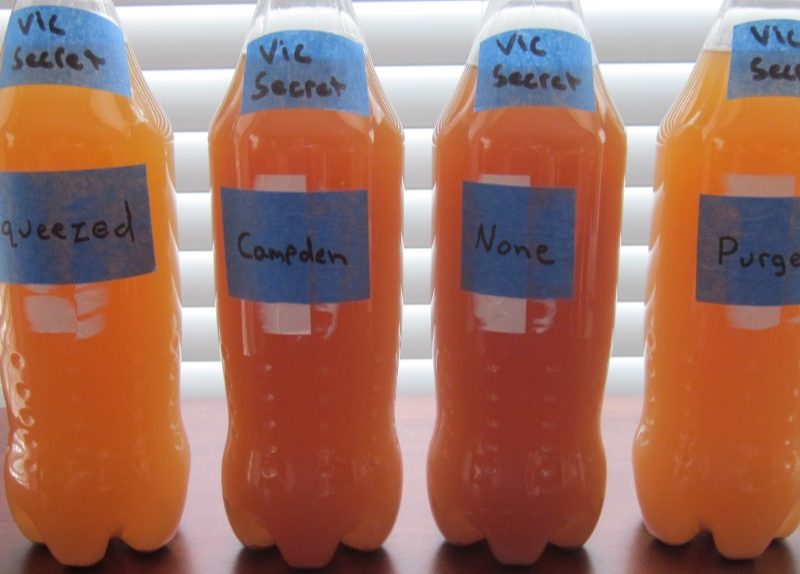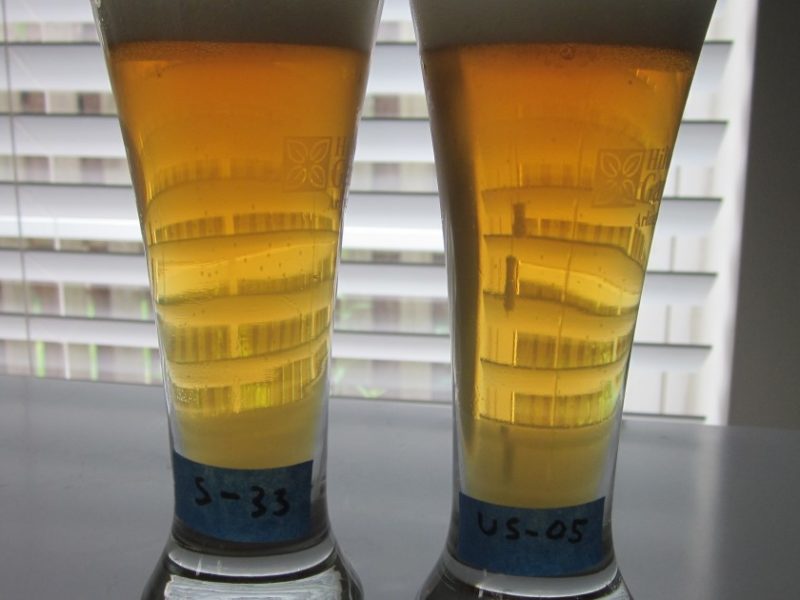In this article, I give an overview of “Investigative Brewing”, looking at what it is and what it is not. I look at how you can apply a focused brewing process to improve your understanding and to improve the beers you make. Hopefully along the way, you might just add a little fun and motivation to your brewing. Let’s get started…
Background and Inspiration
Backing way up, I started homebrewing after college and brewed my first batch in July 1993. Eventually I moved on from stovetop extract batches to a basic 3-vessel all-grain brewing system. I made good beers, even if I did not brew as much as I would have liked most years. I found myself making similar beers, using similar ingredients, following the same general process, over and over.
Fast forward to late 2018. I had not brewed a batch for 2 or 2.5 years. There were a number of factors that led to my hiatus from brewing. One issue, I was brewing good beers but not great beers. Occasionally, I could turn a recipe or a kit into a very nice beer. Though maybe I did not understand the “why”. My notebook only contained a few core recipes that I enjoyed, and some of those were out of date with my current tastes. I just could not make a solid IPA. Even though I knew how to brew, and did not really know how to improve. In addition, I live in an area with dozens of breweries making very solid beers.
The competition coordinator at my homebrew club tweaked the rules to award bonus points to encourage brewing educational beers (thanks Grant!). In addition, he also included a reference to Brulosophy. Between binge reading Brulosophy articles and getting more involved with Reddit and HomeBrewTalk forums, I got my motivation back. With that push, I jumped back in with a focus on improving my process and expanding my knowledge. Investigative Brewing became core staple of my brewing cycle.
The “Typical” Improvement Cycle
Before looking at the benefits of Investigative Brewing, let’s look at the typical homebrew cycle. Most of us brew a mix of styles and recipes. Maybe we have our own recipes, or maybe we are inspired by clone recipes or we chase award-winning recipes. I tended to move between brewing the beers I enjoy, brewing beers based on my club’s competition styles, and brewing based on random inspiration.
In January I might brew a batch of a Porter. Then maybe it would be the following January before I got around to brewing another batch of Porter. I probably had records of my recipe but I likely did not have any details of the actual brew day or have tasting notes. I always thought I would recall the details of a batch, but I never did. Was my new batch better or worse? Was I moving forward or backward? I was mostly treading in the same place.
This improvement process, or lack of improvement process, has many flaws.
- Memory: It is really hard to accurately compare a beer from one day to the next, let alone to a beer from months ago. Tasting notes might help, buy does not solve the issue.
- Ingredient Differences: Even when brewing the “same” recipe, it is likely that the ingredients were different. I might have a sack of Great Western instead of Briess base malt. Maybe the shop had a different maltster’s Crystal. Hops often vary from year to year, or even bag to bag.
- Process and Equipment Differences: My general process often changes or equipment gets replaced or upgraded. I might have moved to a different fermenter or chiller. Maybe I changed how much trub I transfer out of the brew kettle. I could have started to dabble in water chemistry.
- Batch to Batch Variables: There are a number of hard to control variables. The chemistry of my tap water changes with the seasons. The cooling water temp impacts how fast I chill a batch. Temperatures like mash and fermentation are hard to match exactly. The health of the pack of yeast can be an unknown.
Without a dedicated focus on improving, it can be hard to improve.
What is Investigative Brewing?
First, why the term Investigative? I picked Investigative over Experimental because the term Experimental is often used to describe one off batches using unusual ingredients. If you really want to use your neighbor’s garden harvest for that chili basil gose, don’t let me hold you back, but that is not my focus. Plus, didn’t somebody already write a book about Experimental Homebrewing?
Looking at a definition for Investigate
Investigate
1) to examine, study, or inquire into systematically; search or examine into the particulars of; examine in detail.
2) to search out and examine the particulars of in an attempt to learn the facts about something hidden, unique, or complex, especially in an attempt to find a motive, cause, or culprit:
What I am talking about is more a focus on brewing beers with a specific focus on ingredients, process or equipment.
- Does batch or fly sparging have an impact on the quality of your brews?
- Do you have an understanding of what Roasted Barley and Black Patent add to a beer and do you have have a preference?
- Do different dry hopping techniques produce beers that you enjoy more?
Notice the word you/your repeated in those statements. While it is worth respecting authors, scientist and head brewers; the real measure is against your preferences for your beers brewing with your equipment following your process.
But Why?
People brew beer for a variety of reason. For me, it is more than just having beer to drink. I get a sense of satisfaction from learning and improving. Investigative Brewing has also been fun and inspirational, giving me some motivation and purpose to brewing. Yeah, brewing another batch of your Pale Ale will result in enjoyable beer to drink and share. The repetition can become a little, well, repetitious.
I have also enjoyed sharing my beers with homebrewing clubs. Several people have let me know how much they have learned. I will admit that sometimes I think my girlfriend gets tired of asking “what is in these cups?” each time she visits and I stick some trial beers in front of her.
In addition to just motivating me, I believe other homebrewers will find my results educational. In addition, I hope that my contributions will motivate others to jump in an contribute. You don’t have to hang out on forums for long to realize that the number of nit picks about Brulosophy’s exBEERiments vastly outnumbers the posts of people sharing the results of their own trials. I want to learn from YOUR results!
Types of Investigative Brewing
There are various types of beers that can help you focus on improvement. Just a few are:
- Isolated Variable: These are the ultimate in educational brews, similar to the process that Brulosophy follows. The basic idea is to split a batch with just one variable different (yeast, mash temp, etc.). I will dig into this process soon, and talk about my process and equipment.
- Iterative Brewing: This involves iterating over a recipe or maybe digging into a style; brewing multiple iteration with one, or at least very few, changes. I will also talk more about this and how it has helped me nail down some house recipes.
- Ingredient Focus: Another great way to learn is to brew beers designed to highlight a specific ingredient. These can be beer made with a single grain, or a single hop. Including a new ingredient into a tried and true recipe can also be educational. I have done a number of small batch hop samplers and a few single grain batches as well. I have then been able to feed this knowledge into my recipes.
Investigative Brewing Summary
To recap, Investigative Brewing is a great way to improve your knowledge about brewing; it is a method to improve the quality of your beers; and it might just inject some fun into the brewing process! It might not be the best way to get dates.
Be sure to follow along with other articles in this category. I will dig into the process and equipment needed, and share the results of some of my Investigative Brews.
Feature Image by Chokniti Khongchum from Pexels



